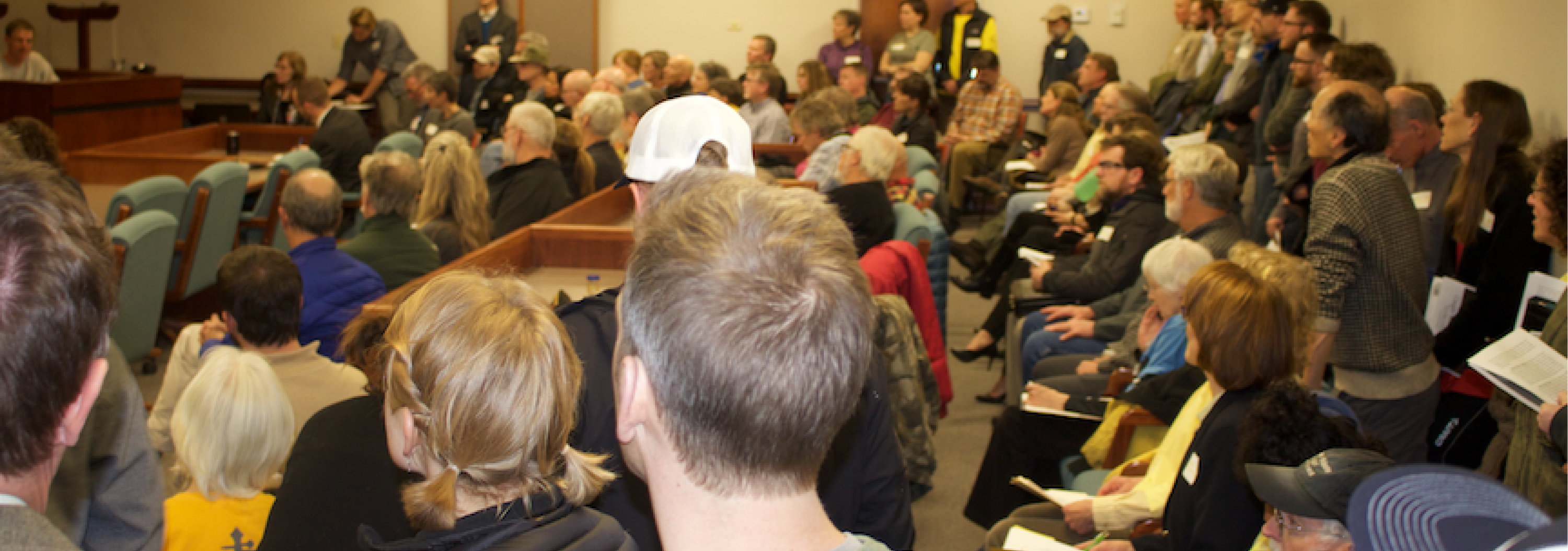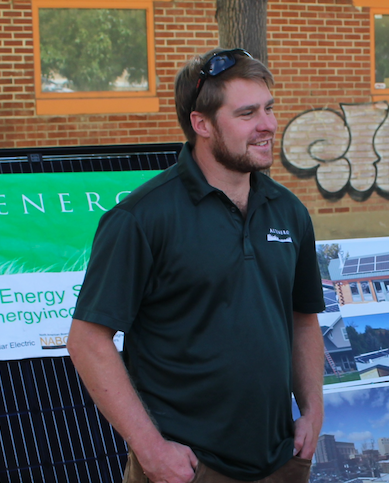
Last week the Idaho Public Utility Commission hosted two packed public hearings to solicit input on Idaho Power’s proposal to change compensation structure for solar customers and others who generate their own electricity. Virtually everyone in attendance spoke against Idaho Power’s proposal.
Starting on Thursday, March 8th, the PUC will host a technical hearing in Boise to consider the issue further.
Idaho Power alleges that customers who generate their own electricity (“net meterers”) are not paying for their fair use of grid infrastructure. The Company has asked state regulators to approve a plan to put these customers into their own customer class -- a first step towards charging these customers different rates. If approved, this regulatory change could have drastic implications for customers’ right to self-generate and offset their own electricity usage without discrimination.
Customers at the packed public hearings expressed concerns that Idaho Power had not completed cost-benefit studies to show there is a need for a separate rate class, spoke about the environmental and social need to move away from dirty energy and expressed concerns about negative impacts to Idaho’s growing clean energy industry.
 Jesse Simpson, who works for a local solar company, testified, “I moved to Idaho 5 years ago to start a job with Alterenergy, a local solar company. I recently had my first child and bought my first home here in Boise. I am really happy to finally be able to support my family and own a home. This net metering case has me worried about my job and the future of my career in Idaho. I urge the PUC to please decline this request from Idaho Power to put net metering customers into a separate rate class”.
Jesse Simpson, who works for a local solar company, testified, “I moved to Idaho 5 years ago to start a job with Alterenergy, a local solar company. I recently had my first child and bought my first home here in Boise. I am really happy to finally be able to support my family and own a home. This net metering case has me worried about my job and the future of my career in Idaho. I urge the PUC to please decline this request from Idaho Power to put net metering customers into a separate rate class”.
PUC Technical Analysis Group Program Manager, Stacey Donohue, previously testified that the commission staff reviewed the Company’s consumption data found “no evidence justifying a separate rate class for net metering customers”. PUC staff noted that the Company “did not file a cost of service study demonstrating any meaningful differences in net metering customers compared to standard residential customers.”
Sierra Club and other clean energy advocates have intervened in this proceeding and share PUC staffs’ concerns.
Zack Waterman, Director of the Idaho Chapter Sierra Club, issued the following statement:
“Idaho Power’s proposal to segregate customers that generate their own electricity into a separate rate class is poor public policy because it puts the cart before the horse. The Company has yet to complete any comprehensive benefits-cost study to show there is any cost shift problem that needs to be addressed.
A recent report by the nonpartisan Brookings Institute found that net metering “frequently benefits all ratepayers when all costs and benefits are accounted for”. Net metering solar customers provide power to their next-door neighbors and can help reduce the need for expensive transmission and distribution infrastructure necessary to move electricity from power plants that may be hundreds of miles away.
Today Idaho’s solar industry employs hundreds of workers across the state and is growing fast. Before we single out solar customers and cast uncertainty into the marketplace, we need to first complete a stakeholder involved cost-benefit analysis. If the study determines there is a cost shift that needs to be addressed, the Company should consider a broader range of policy alternatives. The overwhelming majority of states that have implemented changes to net metering have moved forward with out segregating solar customers into a separate rate class.
Placing solar customers into a separate customer class is premature and may limit customers right to offset their own electricity usage without being charged higher rates for electricity consumed from the grid. Sierra Club believes that every customer should have the right to offset their energy use through generation or use of energy efficiencies without discrimination".
More information can be found below:
What you need to know about the debate over rooftop solar in Idaho